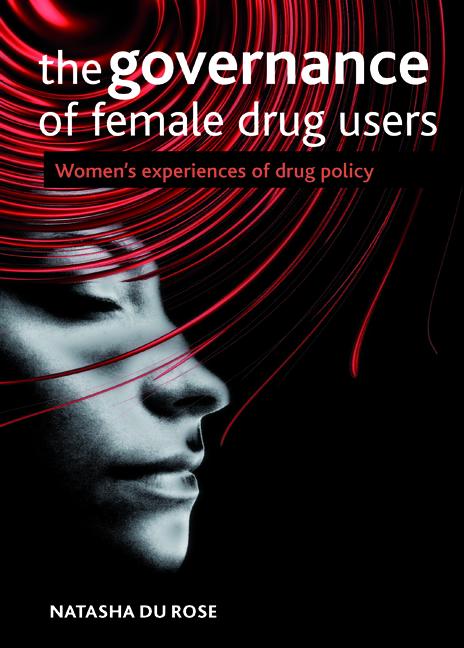Appendix: Research methods
Published online by Cambridge University Press: 10 March 2022
Summary
The way in which a sample is accessed ultimately affects the kind of respondents the researcher will interview. There were three cohorts from three different English cities: Bristol, Reading and London. The 21 women from Bristol were interviewed for part of the researcher’s PhD. Most of these women were contacted through a drugs project, some responded to a poster, four were contacted through the snowballing method, and a few through other means (such as on the street, or through a friend of a friend). The second cohort of nine women came from a Drug and Alcohol Team (DAAT)-funded study on stimulant services in Reading, and were accessed mainly through two of the DAAT-funded drug services in Reading. Forty-two men and women in total were interviewed during the fieldwork for the stimulant study, and nine of them were women. Only the women's interview data was used for this study. The third cohort of 10 women were all accessed in courtyards or doorways at the beginning of Narcotics Anonymous (NA) meetings in South or East London locations. This final sample were accessed with the intention of finding more women who were ‘in recovery’.
The 40 women who came forward to be interviewed were very much an ‘opportunity sample’. While the researcher attempted to gain a sample of women with a range of experiences, the women who did agree to be interviewed represented only a fraction of those involved in dependent drug using in Bristol, Reading and London. In addition, all of them were willing and able to discuss their experiences (although some did not find it easy). This raised the question of whether the accounts of the women who volunteered to be interviewed might be substantially different to those who did not. However, the aim of finding a ‘representative’ sample is a positivist concern displaced by the theoretical framework adopted in this study.
This study does not make any claims that the sample used was ‘representative’. No generalisations have been made about women who use crack and heroin based on the accounts of the women in this sample. For instance, at some stage most of the women funded their heroin or crack habit through crime or sex work.
- Type
- Chapter
- Information
- The Governance of Female Drug UsersWomen's Experiences of Drug Policy, pp. 277 - 278Publisher: Bristol University PressPrint publication year: 2015

